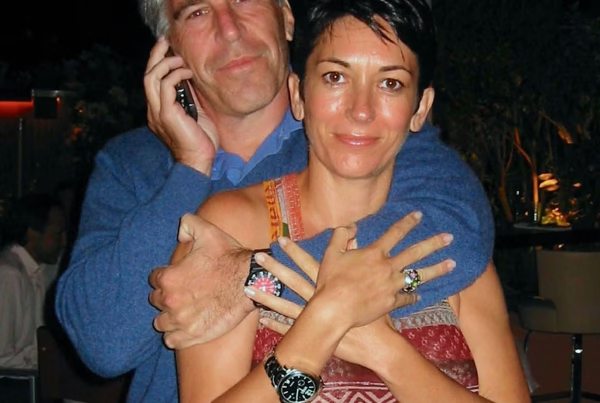Coming out. The phrase often brings to mind dramatic revelations, tearful embraces, and grand announcements. But my journey to embracing my bisexuality was more subdued and personal.
In my Indian household, discussing sexuality was as taboo as mentioning Voldemort. We never talked about it. The closest we came was through Bollywood movies with their heteronormative love stories, where the biggest drama was the hero battling villains to rescue the heroine. Spoiler alert: he always did.
My first hint that I might be different came in high school. While my friends were swooning over Shah Rukh Khan, I found myself equally captivated by Priyanka Chopra. Did this make me weird? Confused? Probably both. I kept these feelings to myself, hidden away like a secret diary under my mattress.
Fast forward to college, where the freedom of being away from home and the anonymity of a big city allowed me to explore my feelings more openly. I realized I was attracted to both men and women. Bisexual. The word felt right, but saying it out loud was another challenge.
I didn’t have a grand coming-out moment. There was no dramatic announcement or rainbow confetti. Instead, my coming out was a series of small, quiet conversations. First with my closest friends, who were supportive and loving. “Yeah, we kind of guessed,” one of them said with a smile. Apparently, I wasn’t as subtle as I thought.
But telling my family? That’s a different story. The idea of coming out to them felt like stepping into a minefield. Indian families are tight-knit and deeply rooted in tradition. Discussing my sexuality with them was terrifying. So, I’ve kept that part of myself hidden from them. They don’t know, and maybe they never will.
Then came my first date with a woman. Her name was Anjali, and we met through mutual friends. She had a smile that could light up a room and a laugh that was contagious. We decided to meet up for coffee, and I was so nervous that I almost canceled. What if someone we knew saw us? What if she didn’t like me? What if I made a fool of myself?
But I pushed through the nerves and went to the coffee shop. When I saw her sitting there, looking just as nervous as I felt, something in me relaxed. We spent hours talking about everything and nothing—our favorite movies, our hopes for the future, the best places to get street food. There was an ease to our conversation, a connection that felt both exhilarating and terrifying.
At one point, she reached across the table and took my hand. It was such a simple gesture, but it felt monumental. I realized that this was what I had been missing—the freedom to be myself, to be open about my feelings, to connect with someone on a deeper level. It wasn’t about making a statement or proving a point; it was about finding joy in being who I am.
Living as a bisexual woman in India comes with its own set of challenges. There’s societal pressure to conform, to marry a man, and to follow the traditional path. There’s the fear of being judged or ostracized by family and friends. And then there’s the internal struggle of balancing multiple identities—being Indian, being bisexual, being true to oneself.
Despite these challenges, I’ve found solace in my chosen family—my friends. They’ve been my rock, my confidants, the ones who know and accept me for who I am. There’s something incredibly liberating about having people in your life who see the real you and love you anyway. Like the time my friend threw a small, impromptu Pride celebration just for us, complete with rainbow cupcakes and a heartfelt toast to living authentically.
My journey of coming out quietly has taught me the importance of patience and self-acceptance. It’s shown me that acceptance, both from others and from oneself, takes time. And that’s okay. I’ve learned to celebrate the small victories, to find strength in my identity, and to embrace my bisexuality with pride.
To anyone else out there navigating a similar path, know that you’re not alone. Your journey is valid, whether it’s loud and proud or quiet and introspective. Take your time, be kind to yourself, and remember that coming out is about living authentically. It’s about being true to who you are, even if that means doing it one small step at a time.
How to Make It Easier for Your Friends or Loved Ones to Come Out to You
Coming out can be a daunting experience, filled with fear, uncertainty, and vulnerability. As friends and loved ones, we have the power to create a supportive environment that makes this process easier and more comfortable. Here are some tips on how to be a good ally and provide the support your friends or loved ones need when they decide to come out to you.
- Create a Safe and Open Environment
– Foster an atmosphere where open conversations about feelings, identities, and experiences are welcomed. This means avoiding jokes, comments, or behaviors that might make someone feel judged or unsafe.
- Listen Without Judgment
– When someone comes out to you, the best thing you can do is listen. Allow them to share their story at their own pace without interrupting or jumping to conclusions. Avoid making assumptions or imposing your own beliefs on their experience.
- Show Your Support
– Express your support clearly and sincerely. A simple “I support you” or “I’m here for you” can mean the world to someone coming out. Let them know that their identity doesn’t change how you feel about them.
- Educate Yourself
– Take the initiative to learn about different sexual orientations and gender identities. Educating yourself shows that you care and helps you understand and support your friend or loved one better. There are many resources available online, in books, and through LGBTQ+ organizations.
- Respect Their Privacy
– Coming out is a personal journey. Respect their privacy and confidentiality. Don’t share their story with others without their explicit permission. Allow them to decide when and how they want to share this part of their identity with others.
- Ask How You Can Help
– Everyone’s needs and experiences are different. Ask your friend or loved one how you can best support them. They might need someone to talk to, a distraction from stress, or help in finding resources and communities.
- Be Patient
– Understand that coming out is a process that doesn’t end with one conversation. Be patient as they navigate their feelings and experiences. Offer ongoing support and be there for them as they continue their journey.
- Avoid Stereotypes and Assumptions
– Steer clear of stereotypes or assumptions about their identity. Each person’s experience is unique, and it’s important to respect and honor their individual journey.
- Celebrate Their Courage
– Coming out takes a lot of courage. Acknowledge their bravery and celebrate this important step in their life. Let them know that you’re proud of them for being true to themselves.
- Continue to Advocate for Inclusivity
– Support doesn’t end with a single conversation. Continue to advocate for inclusivity and acceptance in your community. Speak out against discrimination and stand up for LGBTQ+ rights. Your ongoing support helps create a more inclusive world for everyone.
By following these tips, you can create a supportive environment that makes it easier for your friends and loved ones to come out to you. Remember, the most important thing you can do is to be there for them with an open heart and a listening ear. Together, we can build a world where everyone feels safe and accepted for who they are.
Navigating this journey has been a learning experience, and I’m grateful for the supportive people in my life. If you’re on a similar path or have your own experiences to share, I’d love to connect. Let’s support each other through this complex and rewarding journey of self-discovery. Because ultimately, being true to ourselves and living authentically is what truly matters.





